Abstract
BACKGROUND: The past seven years have seen rapid changes in general practice in the United Kingdom (UK), commencing with the 1990 contract. During the same period, concern about the health and morale of general practitioners (GPs) has increased and a recruitment crisis has developed. AIM: To determine levels of psychological symptoms, job satisfaction, and subjective ill health in GPs and their relationship to practice characteristics, and to compare levels of job satisfaction since the introduction of the 1990 GP contract with those found before 1990. METHOD: Postal questionnaire survey of all GP principals on the Leeds Health Authority list. The main outcome measures included quantitative measures of practice characteristics, job satisfaction, mental health (General Health Questionnaire), and general physical health. Qualitative statements about work conditions, job satisfaction, and mental health were collected. RESULTS: A total of 285/406 GPs (70%) returned the questionnaires. One hundred and forty-eight (52%) scored 3 or more on the General Health Questionnaire (GHQ-12), which indicates a high level of psychological symptoms. One hundred and sixty GPs (56%) felt that work had affected their recent physical health. Significant associations were found between GHQ-12 scores, total job satisfaction scores, and GPs' perceptions that work had affected their physical health. Problems with physical and mental health were associated with several aspects of workload, including list size, number of sessions worked per week, amount of time spent on call, and use of deputizing services. In the qualitative part of the survey, GPs reported overwork and excessive hours, paperwork and administration, recent National Health Service (NHS) changes, and the 1990 GP contract as the most stressful aspects of their work. CONCLUSIONS: Fifty-two per cent of GPs in Leeds who responded showed high levels of psychological symptoms. Job satisfaction was lower than in a national survey conducted in 1987, and GPs expressed the least satisfaction with their hours, recognition for their work, and rates of pay. Nearly 60% felt that their physical health had been affected by their work. These results point to a need to improve working conditions in primary care and for further research to determine the effect of any such changes.
Full text
PDF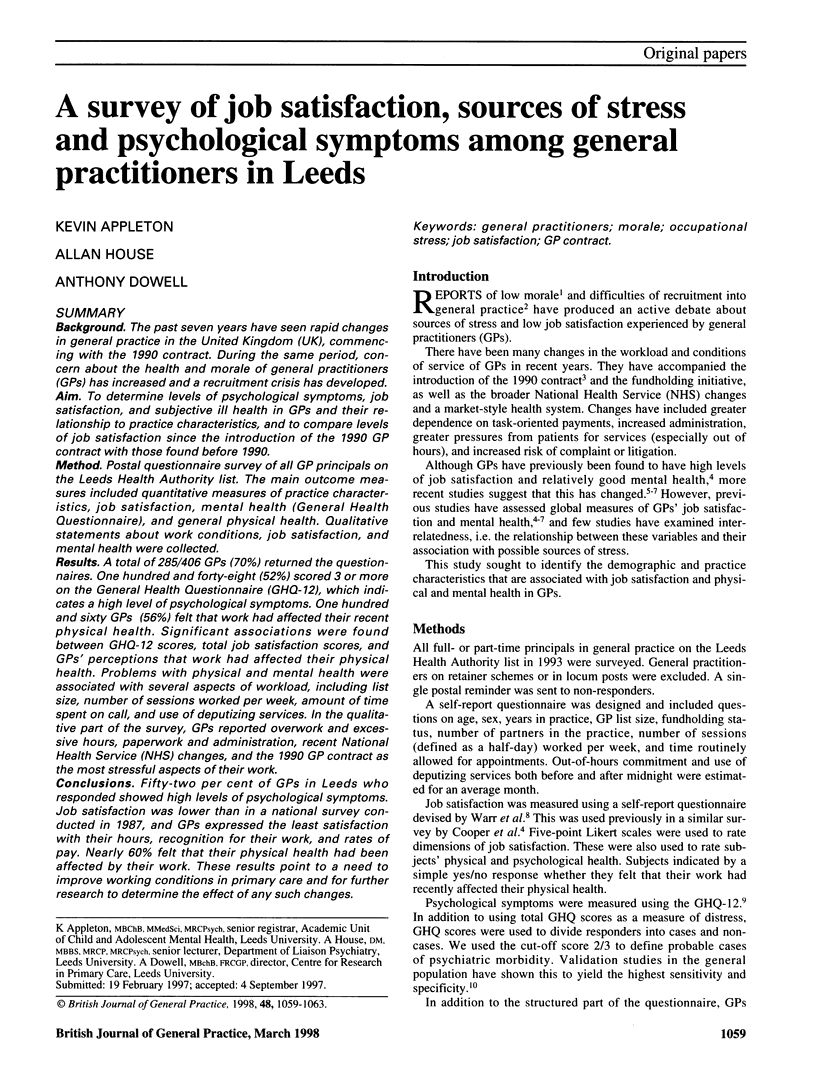
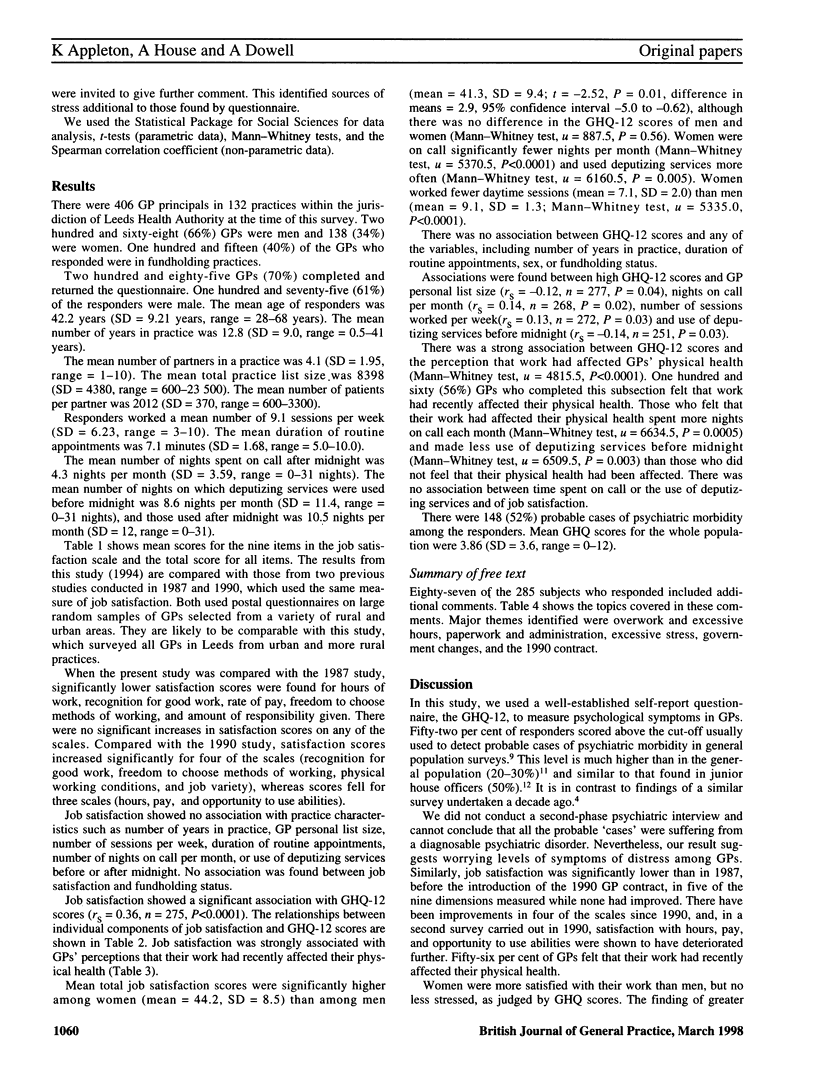
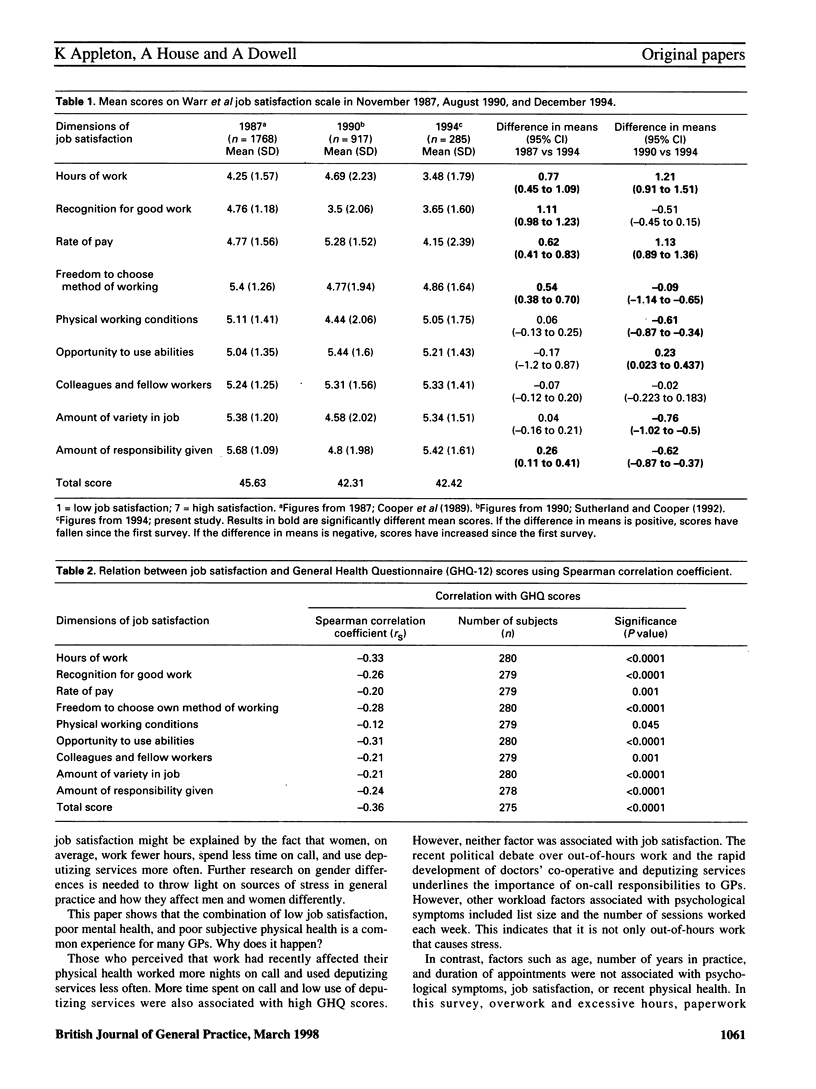
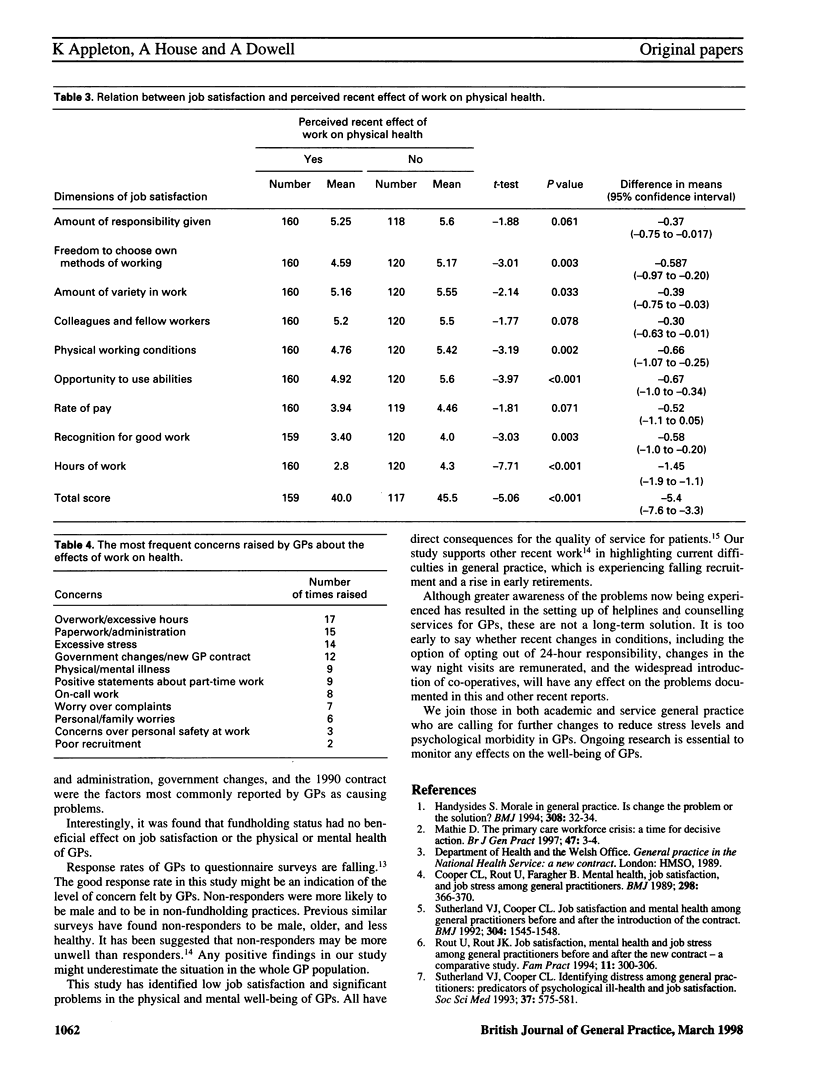
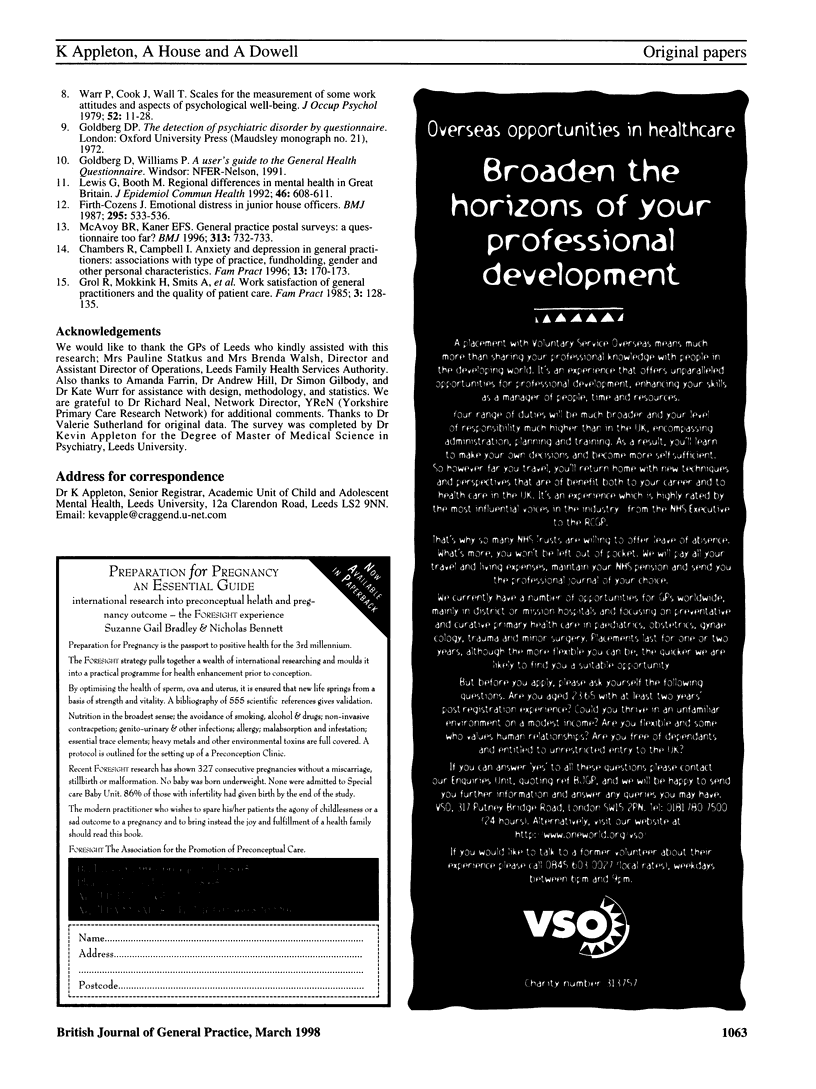
Selected References
These references are in PubMed. This may not be the complete list of references from this article.
- Chambers R., Campbell I. Anxiety and depression in general practitioners: associations with type of practice, fundholding, gender and other personal characteristics. Fam Pract. 1996 Apr;13(2):170–173. [PubMed] [Google Scholar]
- Cooper C. L., Rout U., Faragher B. Mental health, job satisfaction, and job stress among general practitioners. BMJ. 1989 Feb 11;298(6670):366–370. doi: 10.1136/bmj.298.6670.366. [DOI] [PMC free article] [PubMed] [Google Scholar]
- Firth-Cozens J. Emotional distress in junior house officers. Br Med J (Clin Res Ed) 1987 Aug 29;295(6597):533–536. doi: 10.1136/bmj.295.6597.533. [DOI] [PMC free article] [PubMed] [Google Scholar]
- Grol R., Mokkink H., Smits A., van Eijk J., Beek M., Mesker P., Mesker-Niesten J. Work satisfaction of general practitioners and the quality of patient care. Fam Pract. 1985 Sep;2(3):128–135. doi: 10.1093/fampra/2.3.128. [DOI] [PubMed] [Google Scholar]
- Handysides S. Morale in general practice: is change the problem or the solution. BMJ. 1994 Jan 1;308(6920):32–34. doi: 10.1136/bmj.308.6920.32. [DOI] [PMC free article] [PubMed] [Google Scholar]
- Lewis G., Booth M. Regional differences in mental health in Great Britain. J Epidemiol Community Health. 1992 Dec;46(6):608–611. doi: 10.1136/jech.46.6.608. [DOI] [PMC free article] [PubMed] [Google Scholar]
- Mathie T. The primary care workforce crisis: a time for decisive action. Br J Gen Pract. 1997 Jan;47(414):3–4. [PMC free article] [PubMed] [Google Scholar]
- McAvoy B. R., Kaner E. F. General practice postal surveys: a questionnaire too far? BMJ. 1996 Sep 21;313(7059):732–734. doi: 10.1136/bmj.313.7059.732. [DOI] [PMC free article] [PubMed] [Google Scholar]
- Rout U., Rout J. K. Job satisfaction, mental health and job stress among general practitioners before and after the new contract--a comparative study. Fam Pract. 1994 Sep;11(3):300–306. doi: 10.1093/fampra/11.3.300. [DOI] [PubMed] [Google Scholar]
- Sutherland V. J., Cooper C. L. Identifying distress among general practitioners: predictors of psychological ill-health and job dissatisfaction. Soc Sci Med. 1993 Sep;37(5):575–581. doi: 10.1016/0277-9536(93)90096-m. [DOI] [PubMed] [Google Scholar]
- Sutherland V. J., Cooper C. L. Job stress, satisfaction, and mental health among general practitioners before and after introduction of new contract. BMJ. 1992 Jun 13;304(6841):1545–1548. doi: 10.1136/bmj.304.6841.1545. [DOI] [PMC free article] [PubMed] [Google Scholar]


